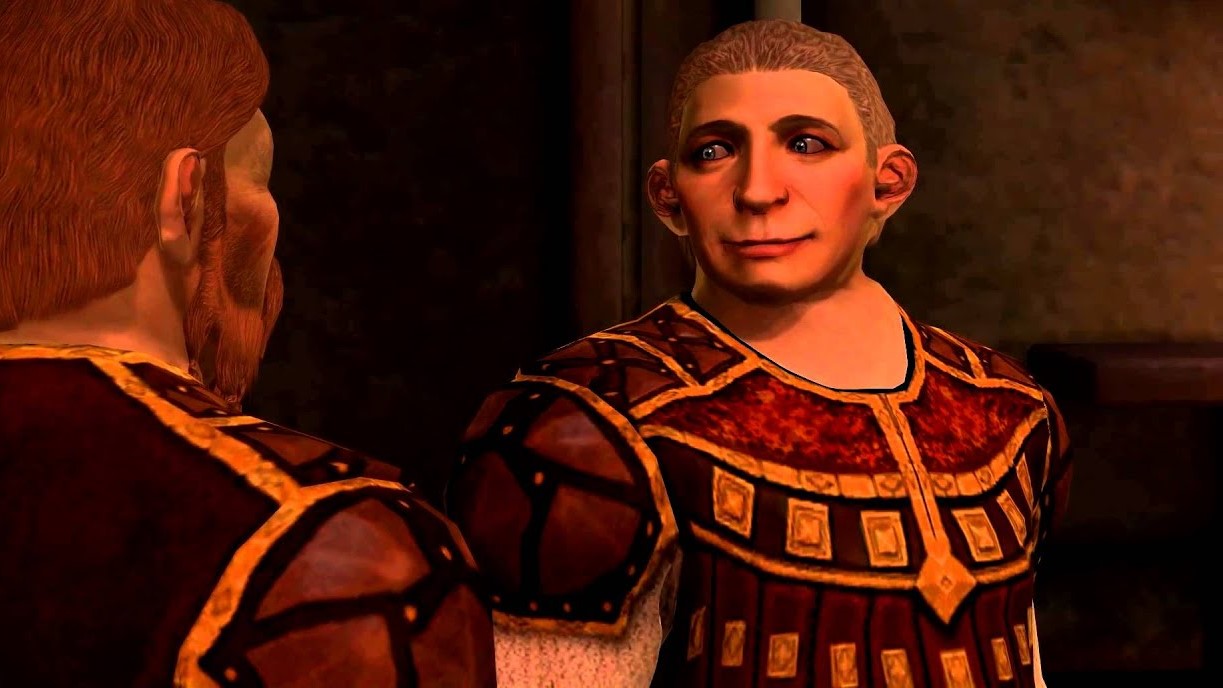In an effort to support diversity and representation in gaming, I am writing about a topic near and dear to me: neurodiversity—specifically, neurodivergent characters in RPGs.
I knew this was a project that would take a good deal of time and research. Add on the struggles and distractions that come with being ADHD myself, and I began to question whether this article would ever come to fruition. But I pushed through. The result looks much different than what I initially planned.
Updated May 11th, 2023 at 8:48 PM EST: This article does make reference to Asperger’s syndrome due to that being a specific diagnosis referenced for one of the characters. However, the term is now considered outdated and concerning. It was eliminated with the adoption of the DSM-V in 2013, where it was incorporated into the ASD category, and many in the community are distancing themselves from the term due to Asperger’s Nazi party affiliations. Scientific American outlines some of the information about the term succinctly in their blog.
What does neurodivergent mean?
The term neurodivergent is a broad description. Simply put, it covers any mode of brain function or behavior that deviates from the societal norm. This can include a wide range of conditions, including attention-deficit/hyperactivity disorder (ADHD), autism spectrum disorder (ASD), Asperger’s, dyslexia, obsessive-compulsive disorder (OCD), and more. People who function within the normal societal parameters are referred to as neurotypical.
It’s safe to assume most of us know, care about, or are someone who is considered neurodivergent. In fact, up to 15-20 percent of the world’s population has some form of neurodivergence. As mentioned, I have ADHD and a daughter on the autism spectrum. The two of us share a love of video games, especially RPGs. Many other neurodiverse people share a similar passion. Video games (and RPGs, in particular) can be very beneficial in building social and motor skills and have even been used as a form of therapy.
So considering the ratio and span of neurodiversity in the world, it seems like finding examples of neurodivergent characters throughout RPGs would be easy. Unfortunately, this is not the case at all. The pool of candidates is very shallow, even when extending the platform to include all video game genres. Narrow it further to canonically affirmed characters, and the results are barren. So what began in my head as a “Neurodivergent Characters Countdown” (because we all love a good list) became something much different. Through the writing and research process, I saw an evident lack of proper, accurate, and diverse neurodivergent representation.
Most neurodivergent characters fall into unfortunate tropes or come across as an object of ridicule or comic relief. A vast majority of characters are coded to varying degrees. I could argue whether they were intended to have neurodivergent traits at all. For this article, I have included both characters that are neurodivergent according to canon and those who are more neurodivergent-coded (exhibiting traits without confirmation). Some of the most common archetypes these neurodivergent characters tend to fall under are…
The Scientists
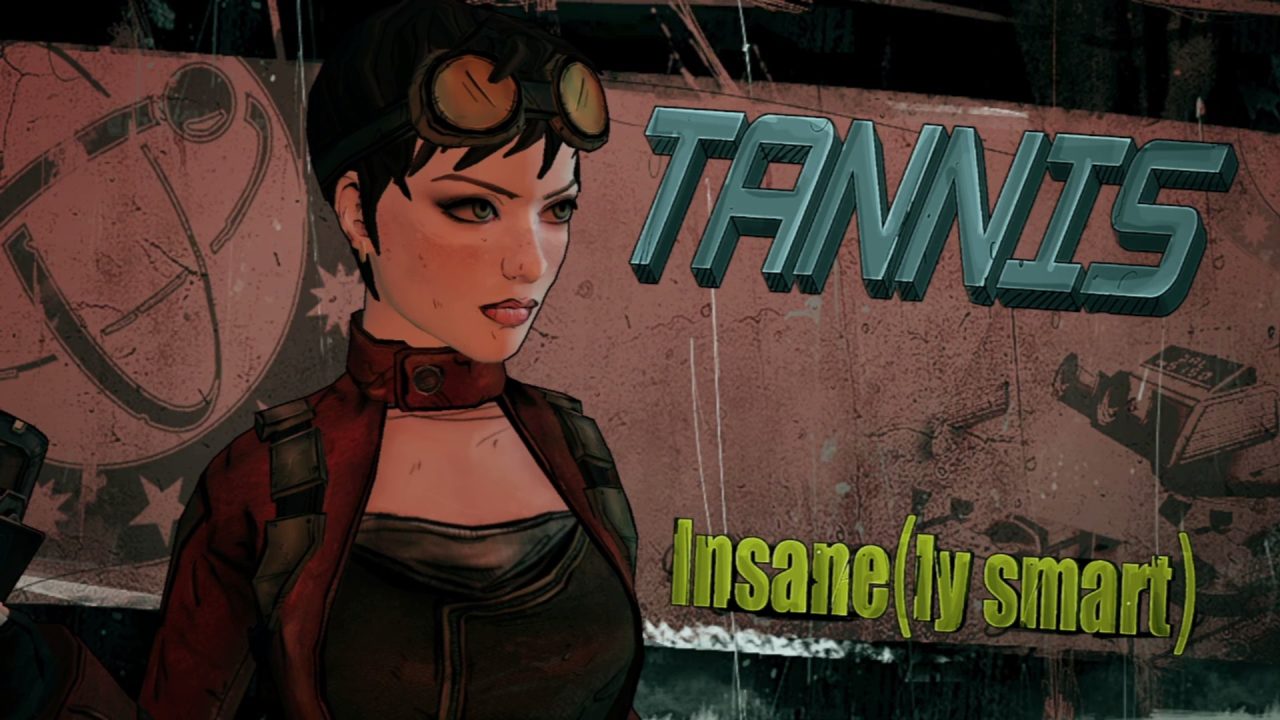
Many scientist characters in RPGs have neurodivergent traits. These include obsession with their research, failure to read social cues and lack of empathy. One such character is Dr. Patricia Tannis of the Borderlands series. She is also among the rare RPG characters confirmed to be neurodivergent in-game. If the player accepts her Borderlands 2 quest, “Hidden Journals,” the mission briefing reads, “How did an insane introvert with Asperger’s manage to survive in Sanctuary?”
Tannis is a scientist and archeologist employed by the Dahl Corporation to find evidence of the mysterious vault on the planet Pandora. Initially skeptical of the vault’s existence, she develops an extreme obsession with finding the vault, staying behind even after her employer abandons the project. She has extreme social anxiety and would prefer to avoid all human interaction, and has experienced major traumas, including witnessing the deaths of her fellow researchers. As a result of these factors, she develops relationships with inanimate objects (an ECHO recorder and two chairs) as a coping mechanism.
What is problematic in identifying her neurodivergent characteristics is that, along with having Asperger’s, she has detached from reality. This muddies the waters a bit and could cause a misrepresentation of Asperger’s by entangling it with traits of insanity and PTSD. For instance, struggling to show empathy is a common sign of Asperger’s. Tannis (and other Mad Scientist archetypes) shows an extreme case of this, to the point she admits to feeling no sadness in her recordings (even in the most brutal cases). This is not an accurate portrayal of Asperger’s. Struggling to show empathy does not mean being incapable of feeling. In Patricia’s case, I will at least concede that she is a Borderlands character, and nearly all NPCs in this universe show some level of insanity.
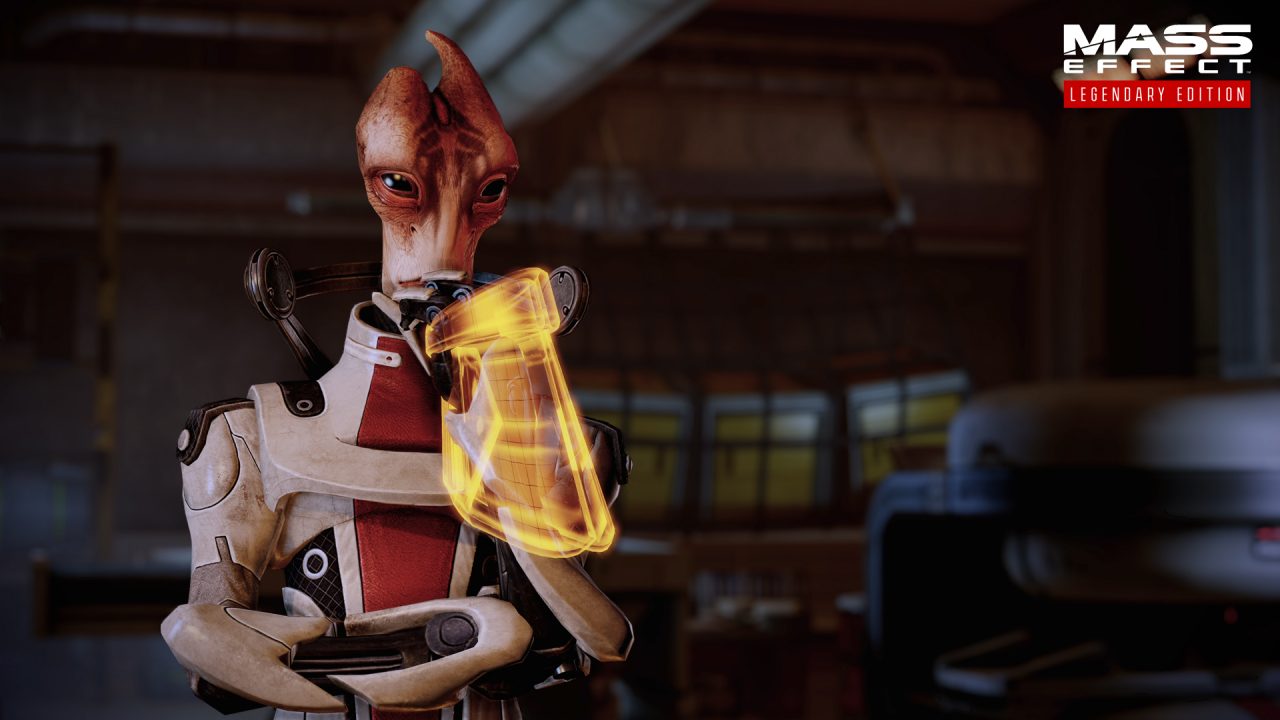
Another example of this trope is my favorite salarian, Mordin Solus. Shepard recruits this scientist in Mass Effect 2 to join in their mission against the collectors. Throughout the game, you learn about his past involvement with the Krogan genophage–a biological weapon used against the species to limit their reproduction through mutation.
Traits of autism and ADHD are identifiable when interacting with Mordin. His quick, choppy speech patterns can indicate someone on the spectrum. Additionally, he often jumps quickly from one thought to another, suggesting ADHD tendencies. Much of his parting dialogue in the Normandy tech lab reflects this, often in humorous ways. He dismisses actions others may see as immoral. Like Tannis, he often comes across as lacking empathy and can appear surprisingly ruthless at times in his attitude toward killing others. Unlike Tannis though, he believes that the ends justify the means—science above conscience.
What separates Mordin—and where I feel the writers did an excellent job—is that despite his outward attitude toward ethics, he is conflicted and sometimes struggles to cope with his past actions. You can see this in him during his loyalty mission in Mass Effect 2, where he must confront his past. He even looks to religion to find peace and meaning (very rare for a science-driven mind). It is a refreshing take on a character trope that typically relies solely on science and data to make choices. Displaying moral dilemmas creates a more profound, multi-faceted character and is an example for writers of future neurodivergent characters to follow.
The Savants
One of the most overused and inaccurate means to portray neurodivergent characters is making them a savant. In short, a savant is brilliant in one area while having major social or intellectual weaknesses in other areas (see Rain Man or Forrest Gump for mainstream depictions). Various forms of media have examples of savantism, and video games are no exception.
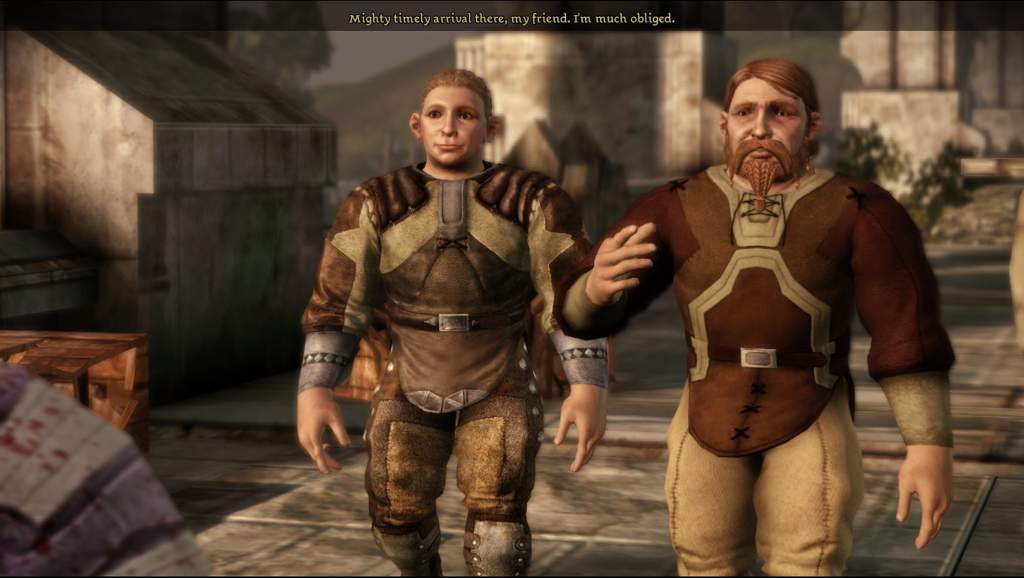
The most memorable RPG example of this archetype is Sandal Feddic from the Dragon Age series. Those who have played Dragon Age: Origins or Dragon Age II no doubt recall Sandal as the young adoptive son of a dwarven merchant, whose dialogue consists of one word….“Enchantment!” Sandal and his father Bodahn travel with your party throughout both games and act as a vendor and–you guessed it– an enchanter.
According to Bodahn, Sandal’s enchanting abilities impressed the Circle of Magi to the point he feared they would try to keep him there as their enchanter. His birth and early childhood are unknown, as Bodahn found him abandoned within the Deep Roads at age five. His father speculates that exposure to the dangerous mineral lyrium is the cause of his behavior, though this is only a theory. Sandal exhibits the symptoms of a severe intellectual delay and is often treated similarly to a young child. Twice during the Dragon Age games, you find Sandal alone, inexplicably surrounded by a group of dead enemies. On each occasion, if the player questions him on what happened, he replies with one-word answers (“Boom” and “Enchantment”). This has led Dragon Age fans to speculate that there may be far more to Sandal than meets the eye.
Sandal exhibits both good and bad aspects of neurodivergent depictions. You could argue that Sandal promotes inclusivity and shows that even those with intellectual impairments can be exceptional. On the other hand, you could view him as just another example of an overused trope meant to be an object of ridicule.
Regarding the savant trope, I would be remiss not to mention the Idiot Savant perk in Fallout 4. It is a luck perk that gives the player a random chance to get multipliers to any XP gains from actions, including enemy kills, if you invest in all three ranks. Here’s the caveat: the chances of triggering the multiplier increase based on how low the character’s intelligence stat is. Lower intelligence = higher chances.
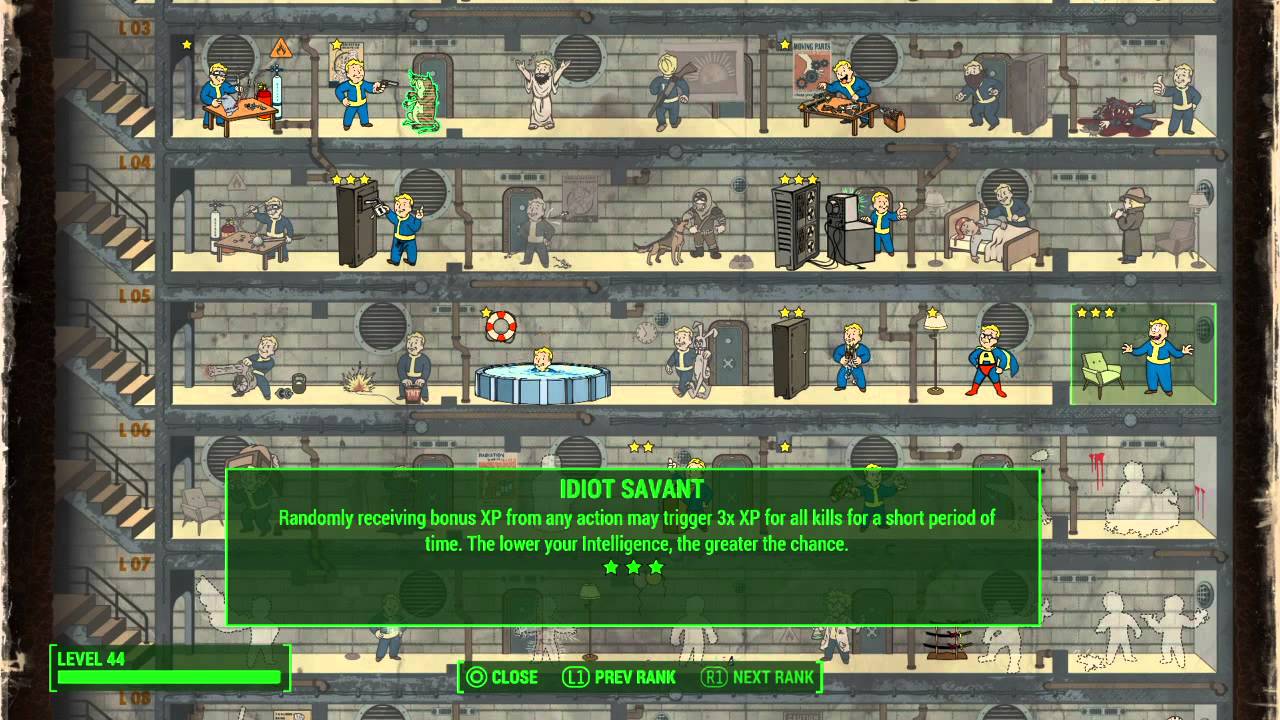
First off, I love the Fallout series, so I do not want to sound like I am attacking the writing or content of the game. Having provided that personal disclaimer, the inclusion of this perk is problematic. To start with, let’s call it as it is. The term idiot savant is an outdated (and offensive) term once used for savant syndrome. Secondly, many people who display savant attributes likely have another related neurodivergent condition, such as autism. These things considered, this perk can promote a false idea that neurodivergent means unintelligent. It also doesn’t help that when the perk triggers, an image of Vault-Boy appears with crossed eyes, and one of three unflattering laugh sounds is played (ranging from what I would describe as a maniacal clown to Patrick Star).
Final Thoughts
I could go on about other tropes and coded characters, but this article is already long. So I will wrap up with my biggest takeaway from researching and writing this article…
There are significant opportunities for game developers and writers to create more diverse, accurate, positive, and explicit depictions of neurodivergent characters. Neurodivergence includes a vast range of characteristics. I have spent a great deal of time around people with autism and other neurodivergent traits, and no two people are the same. Why, then, do depictions so often fall into the same patterns? A plethora of RPG characters can have neurodivergent traits to some degree. Why, then, are canonized examples so rare? There are many RPG fans (both neurodivergent and neurotypical) longing for well-written neurodivergent characters that are depicted accurately and positively. Neurodiversity should be promoted and celebrated. Neurodivergent does not mean less than, but merely different than.

